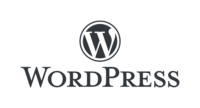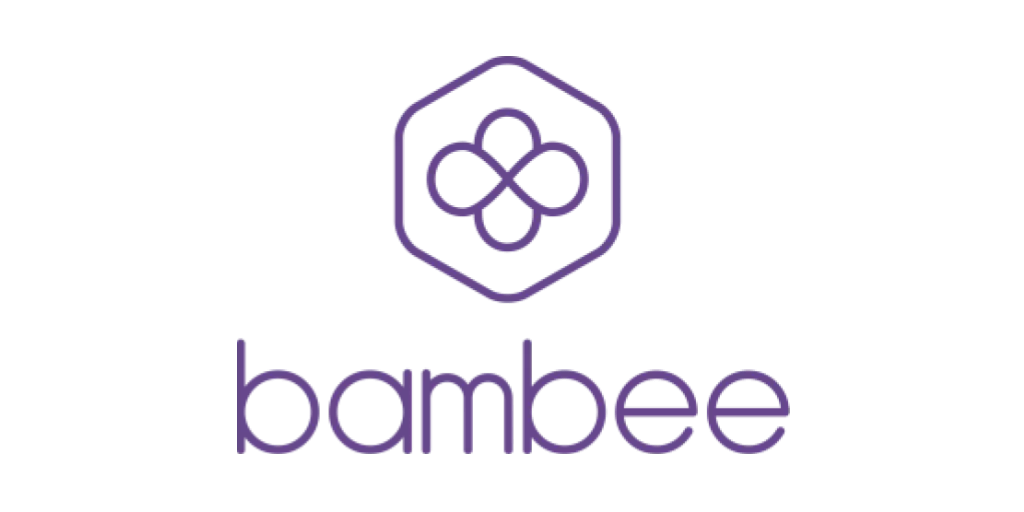
BEST CONTENT MANAGEMENT SOFTWARE (CMS) SYSTEMS OF MAY 2024
Best Content Management Software (CMS) Systems of 2024
On the hunt for the best content management system software? You’re in the right place. Read on to learn which CMS solutions are best based on your specific needs.
Best Overall
WordPress.com
Vault Verified
Why We Chose It
WordPress makes setting up and managing a blog easy. It is reasonably priced and offers an open source application programming interface (API) that you can customize to suit your needs.
Pros
- Extensive add-on and integration catalog to personalize your experience
- User-friendly interface features little-to-no learning curve
- Competitive SEO capabilities and support to elevate your organic presence
Cons
- Open source framework could be more susceptible to hacking than alternatives
- Plugin compatibility can pose a concern in denser tech stacks
- Interface requires frequent updates, which can be time consuming
Additional Information
- Ad-free display for readers, instantly elevating your user experience
- Secure Socket Layer (SSL) certificate included; omitting extra cost
- Email support enables smoother launches for many
- Affordable and scalable membership tiers for most
- Free domain name for one year
Best for Collaborators
Wix Premium Plans
Vault Verified
Why We Chose It
If you’re looking for the best enterprise content management software, you’re in the right place. Wix makes it easy to collaborate with your team, accommodating 2-15 people across membership tier allowances. Using unique log-in details, collaborators can work on the CMS simultaneously, getting more done faster.
Pros
- 14-day money-back guarantee
- Robust free-use image repository
- Simple blog editor with inbuilt SEO tools
Cons
- Users report mixed customer service experiences
- Users report intermittent outages that compromise experience
- Limited flexibility compared to other contenders for the best content management software
Additional Information
- Every Wix Premium plan includes a custom domain for free for a year
- Plans accommodate 2-15+ collaborators at a time
- 24/7 customer support available
- Comprehensive marketing suite available from basal plan onward
- Light, user-friendly interface.
Best Free Enterprise Solution
Drupal
Vault Verified
Why We Chose It
Drupal offers a comprehensive open source platform with thousands of themes for free; making it an ideal solution for enterprises that require a custom build and that have the developmental support to execute well. It’s also free to use and launch, meaning that the only costs you’ll incur are developmental implementation costs. Despite its perks, however, we do not recommend this solution for those that do not have a strong developmental core base of knowledge, as it could hinder how much value you gain from the tool.
Pros
- Tech-savvy users will likely appreciate the simple and flexible product architecture
- Robust community support and online documentation
- Highly secure platform with comprehensive security functions
Cons
- Offers fewer plugins than competing platforms
- Users must hardcode customizations
- Poor documentation for third-party modules
Additional Information
- Highly customizable as open source product; ideal for enterprises
- Robust menu and taxonomy organization options
- Content modeling and block management allows for tailored content presentation styles
- Thousands of templates provide enterprise-level customization
- Advanced marketing automation capabilities
Best for Multilingual Options
Joomla
Vault Verified
Why We Chose It
Joomla has more than 70 language packs that help you make your website multilingual, seamlessly translating the content in a straightforward process so that you can become a global player in your niche. There’s also robust documentation that highlights multilingual optimization paths to give your visitors the best experience yet.
Pros
- No technical experience required to manage the backend
- Features adjust to the applications you use
- Paid and free extensions available via Joomla Marketplace
Cons
- Big files can slow site and computer speed
- Rapid changes require updates to the system regularly
- Offers limited documentation and support compared to competitors
Additional Information
- Open source CMS is highly customizable
- Multilingual-friendly search engine option
- Advanced security features with additional options for personalization
- Multilingual CMS with over 70 translation packs
- Scalable and poised for rapid global expansion
Best for Audience Segmentation
Adobe Experience Manager
Vault Verified
Why We Chose It
Adobe Experience Manager goes above and beyond your average CMS, using modern tools to help your content meet the demands of specific audiences. This allows you to tailor your content better to get views and make an impact from launch.
Pros
- Easily create and publish content across multiple channels
- Quick deployment pathways maximize profitability and engagement
- No coding is required
Cons
- System is more complex than competitors
- Licensing costs can become expensive quickly
- Java is required for more complex integrations
Additional Information
- Artificial intelligence tools allow you to change the tone of voice easily
- Personalized experiences available for different customer audiences
- Simplifies digital content management by combining digital asset management with content management
- Responsive web design options
- Quick build process allows for rapid deployment
Best AI-Driven Experience
Contentful
Vault Verified
Why We Chose It
Contentful allows content creators to set prompts that will help the AI content creation tool get a jump on content. Writers can use the content as a platform for more useful pieces that will rank on the web. We do want to note: While the AI tools they use are quite advanced, our experts do note that they offer similar limitations like you’d find with chatGPT written content—so be sure to consider this prior to your investment.
Pros
- Refinement-ready content created in minutes
- Quality customer support
- Global settings and integrations enable enterprises to scale
Cons
- The nested manner of page parts can be confusing
- Flexibility can be daunting at initial setup for those unfamiliar with the system
- AI tech is not perfect; content may not be publication-ready
Additional Information
- Advanced native AI tech streamlines content production process
- Up to five collaborative users can work simultaneously from Free plan onward
- Community-based support available in the Free plan; technical support offered in the Basic plan or higher
- Structured content flow helps deliver well-organized content quickly
- Client libraries make organizing data straightforward
Related Articles
Vault’s Viewpoint: Compare the Best Content Management Software (CMS) Systems of 2024
Learn More About Content Management Software (CMS) Systems
Content management software (CMS) is a must for digital content publishers. It makes publishing and managing a library much easier—and it’s your primary tool of choice to optimize your reader experience.
To get the most out of your CMS, we have to truly dissect what it is and how it works. Our experts have summarized what you need to know about the best content management system software options, giving you the insight you need to excel.
What Is a Content Management Software (CMS) System?
A CMS platform allows a digital publisher to draft, edit and publish online content with ease. As they serve as your comprehensive hub for all things public-facing, different CMS solutions typically provide different complementary elements and features to elevate your experience. These include perks such as plugins for formatting or technical integrations. Additionally, most CMS platforms offer a drag-and-drop block-style editor to make drafting and customizing content easy.
How Do CMS Systems Work?
Beyond mere creation, a CMS also has a primary function of organizing content. The process for this may vary by vendor, but is fairly simple at its core.
For example: When new content is added to the website, it is first placed in draft mode. This allows relevant parties, such as editors and SEO managers, to edit the content so that it meets editorial standards. Once a draft is complete, the editor or content manager has the option to publish the piece. This can be done immediately or scheduled for a specific date and time.
When content is uploaded, it is then added to the library with all other content to be indexed and viewed. Editors and content managers can move content into certain categories so that similar content is found in the same place on the website, enhancing the search experience for site visitors. SEO staff can also tag content with keywords, further enhancing the search experience based on the user’s search intent.
Who Is CMS Software Best For?
A CMS software solution is best for any individual, site or business that is planning to function as an online publisher in any capacity. While many online publishers might be e-magazines or recreational bloggers, many might also be organizations and enterprises looking to enhance their organic marketing presence via SEO.
In short, anyone who has a library of content that they want to publish (or create) will generally want a CMS to help organize it.
Types of Content Management Systems
There are five primary types of CMS software solutions:
- Component Content Management Systems (CCMS): This type of tool organizes content granularly, collecting words, phrases, paragraphs or images and sorting by value in a centralized “hive.”
- Enterprise Content Management Systems (ECM): This tool type ensures that information and documents are sent to the most qualified audience both inside and outside of an organization. It’s typically more robust in nature, and may come equipped with other more inclusive features.
- Web Content Management Systems (WCMS): This tool option manages digital components of a website exclusively in a sleek, no-code format—enabling authorship and collaboration across the repository without the strain of the developmental steps typically associated with CMS publishing.
- Digital Asset Management Systems (DAM): A DAM allows users to produce, manage, store and organize digital assets across content types, typically in an accessible cloud-based format.
- Document Management Systems (DMS): This tool is a CMS of sorts, without a heavy emphasis on authorship. Rather, it acts as an automated solution for uploading, processing and distributing business documents in a simple, paperless way.
How To Choose a Content Management Software
When looking for the best content management software or a new sales content management system software, there are some factors that you should consider. Our experts have summarized them below in an effort to streamline your evaluation process.
Implementation Costs
There are two costs associated with implementing a new CMS solution. The first is the subscription cost, if your platform of choice has one. Some open source CMS software solutions are free. However, free doesn’t mean that it won’t cost you anything to implement. You may need a developer or someone with coding experience to implement the solution to be a viable working solution for your organization.
Our experts do want to note that most subscription-based solutions are templatized, and don’t require intensive coding experience to implement. You might consider this type of a solution if you are looking for something that is launch-ready.
Access to Templates
Some CMS providers offer thousands of templates both through their own offerings and as third-party integrations. While having a lot of templates may not be necessary, it’s important to make sure that the CMS has a template that fits the needs of your content design—and more variety means more options to choose from. Additionally, some CMS solutions allow you to create your own templates in the solution, which is ideal for those wanting a specific look for their content. The best content management software options typically offer both choices, allowing the customer to choose the solutions that fit their needs.
Storage Space
Building a content library with images and videos can take up a lot of space. As such, it’s best to choose a CMS solution that can support the size of your library.
As you search for this factor in your content management system software of choice, our experts recommend digging deep to confirm how much space you’ll actually be getting. For example: Some solutions have limited plan storage size that upgrades with premium plans, allowing you to scale your business as needed. However, it’s easy to overlook if you’re skimming the pricing tiers quickly, especially with tools with more complex fee structures.
Collaboration Capabilities
Depending on the size of your organization, multiple people may need to touch an asset before it is published. Content creators, editors, SEO staff, marketers and developers may all need to be part of the content creation process. Your CMS of choice has to be robust enough to support the current and future anticipated level of collaboration.
Content Scheduling Tools
Publishers typically create content calendars to ensure consistent and timely content publication. Our experts recommend choosing a CMS that allows you to schedule content based on date and time with few extra steps. Choosing a tool with this flexibility ensures that you can keep a steady stream of content flowing to your target audience.
SEO Features
Getting your content to rank on Google or other search engines is imperative for most digital content publishers. After all—this is how they get eyes on the content without spending a lot of money on ads or hoping things go viral with social media. Our team recommends choosing a CMS platform that incorporates SEO tools into content publishing, ideally without the extra step of an integration or extension download.
Security
As with any tool, our experts recommend choosing a CMS solution that prioritizes security; possibly via code and design features that dissuade hackers from trying to access your website. If you have questions about the depth of your tool’s security, we encourage you to reach out to service reps. They should be able to provide you with the information you need, as well as any additional certifications that the tool has to offer.
Other Content Management Software (CMS) System Alternatives
M-Files
M-Files is an enterprise content management solution that helps businesses oversee documents used throughout the company. It offers generative AI as a solution that allows collaborators and authors to interact with the organization’s base of knowledge, protecting the security of a company’s document management process and assets. Those wanting more information are encouraged to schedule a demo and get a customized quote based on their industry and content library size. The company also offers a 30-day free trial of the platform, allowing you to truly try before you buy.
Zesty.io
Zesty.io is ideal for companies needing capability and “space” for more user accounts, as well as additional storage for content and assets. It’s also ideal for global enterprises, as the site can support 15+ languages at the time of this publication. Plans range from $0 per month to $3,500+ per month, offering you a scalable solution you can count on for your CMS needs.
Magnolia CMS
Magnolia CMS is designed to unify content, assets and data effectively. It is a headless CMS, meaning it can produce content once and then publish it on any device or touchpoint without added restrictions. It’s also an open source solution, making it highly customizable with the proper coding. Its most recent, primary perk is a native AI tool that helps to accelerate how quickly an organization can create content and automate repetitive tasks.
Sitecore
Sitecore is a cloud-based solution that offers an end-to-end composable digital experience.. Beyond its enterprise CMS solution, digital asset management and content operations, you can enjoy native tools for automation, marketing automation, personalization and testing.
HubSpot CMS
HubSpot offers a free, drag-and-drop CMS tool for businesses and enterprises alike. It’s designed to drive traffic, generate leads and grow revenue via inclusive and advanced features; and can be integrated with HubSpot’s other tools, such as its CRM. Beyond its robust CMS, the software includes a theme library and premium cloud hosting on an easy-to-use platform.
Frequently Asked Questions
What Is the Most Widely Used CMS?
WordPress is generally regarded as the most widely used CMS, accounting for over 43% of websites online to date. It’s an open source software that prioritizes both scalability and flexibility in design and coding. Additionally, there are also thousands of plugins available that are compatible with the service, which developers can use to improve the website’s performance and analytics.
What Is A CMS?
A CMS, or content management software, is a solution that helps manage and organize documents and assets in digital format. Digital publishers typically use CMS software to improve the user experience of their websites.
Is CMS Software Free?
There are many free CMS software solutions on the market. However, our experts do want to note that free solutions (such as Drupal) might still require a business to hire a coder or developer to implement the system; especially if the business owner is not very technically savvy.
The post Best Content Management Software (CMS) Systems of May 2024 first appeared on Newsweek Vault.
2024-04-29T14:27:57Z dg43tfdfdgfd











